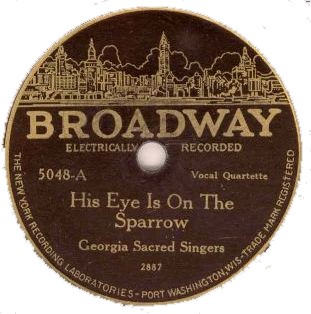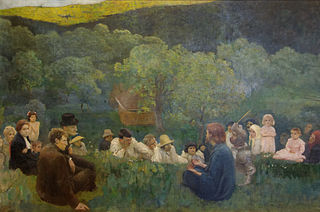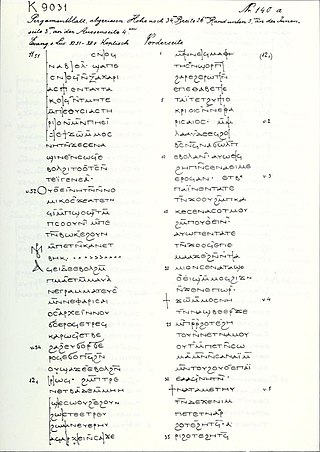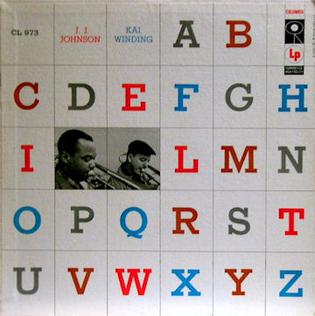
The Beatitudes are blessings recounted by Jesus in Matthew 5:8-10 within the Sermon on the Mount in the Gospel of Matthew, and four in the Sermon on the Plain in the Gospel of Luke, followed by four woes which mirror the blessings.

A sermon is a religious discourse or oration by a preacher, usually a member of clergy. Sermons address a scriptural, theological, or moral topic, usually expounding on a type of belief, law, or behavior within both past and present contexts. Elements of the sermon often include exposition, exhortation, and practical application. The act of delivering a sermon is called preaching. In secular usage, the word sermon may refer, often disparagingly, to a lecture on morals.

Deck the Halls, Bruise Your Hand is the first Christmas album released by Christian rock band Relient K. It was released in many stores as a combo pack with later copies of their previous full-length album, Two Lefts Don't Make a Right...but Three Do.
Psalm 151 is a short psalm found in most copies of the Septuagint (LXX), but not in the Masoretic Text of the Hebrew Bible. The title given to this psalm in the Septuagint indicates that it is supernumerary, as no number is affixed to it. The psalm is ascribed to David. It is also included in some manuscripts of the Peshitta. The psalm concerns the story of David and Goliath.

"Don't Stop" is a song by the British-American rock band Fleetwood Mac, written by Christine McVie. The song was sung by Lindsey Buckingham and McVie, and was released as a single from the band's album Rumours (1977).

Matthew 5:5 is the fifth verse of the fifth chapter of the Gospel of Matthew in the New Testament. It is the third verse of the Sermon on the Mount, and also the third of what are known as the Beatitudes.

Matthew 5 is the fifth chapter of the Gospel of Matthew in the New Testament. It contains the first portion of the Sermon on the Mount, the other portions of which are contained in chapters 6 and 7. Portions are similar to the Sermon on the Plain in Luke 6, but much of the material is found only in Matthew. It is one of the most discussed and analyzed chapters of the New Testament. Warren Kissinger reports that among early Christians, no chapter was more often cited by early scholars. The same is true in modern scholarship.

David Eugene Edwards is an American musician. He is the lead singer of Wovenhand, and also the main songwriter and the principal musician on the recordings of the band. He is the former lead singer of 16 Horsepower. Their music contains elements of old-time, folk, punk, medieval, gypsy, Native American music, and most recently late 1980s and early 1990s Gothic Rock. Lyrically, it deals with pain, conflict, faith, and redemption, with Edwards' personal Christian beliefs influencing much of the lyrical imagery.

"His Eye Is on the Sparrow" is a gospel hymn written in 1905 by lyricist Civilla D. Martin and composer Charles H. Gabriel. It is most associated with actress-singer Ethel Waters who used the title for her autobiography. Tanya Blount & Lauryn Hill recorded the song for the Sister Act 2: Back in the Habit soundtrack in 1993. Jessica Simpson's version was included as the final track on her 2001 album Irresistible. Mahalia Jackson's recording of the song was honored with the Grammy Hall of Fame Award in 2010. Whitney Houston's recording of the song, one of the singer's last to be recorded before her death in 2012, was released off the soundtrack of the film, Sparkle, and became a posthumous number one Billboard single off one of the gospel singles charts.

Matthew 6:25 is the twenty-fifth verse of the sixth chapter of the Gospel of Matthew in the New Testament and is part of the Sermon on the Mount. This verse shifts the discussion from one of money to one of worry.

Matthew 6:26 is the twenty-sixth verse of the sixth chapter of the Gospel of Matthew in the New Testament and is part of the Sermon on the Mount. This verse continues the discussion of worry about material provisions. In this verse Jesus tells his followers not to be anxious about food, but to rely on God as the birds, who are worth far less than people, are fully provided for.

Matthew 6:28 is the twenty-eighth verse of the sixth chapter of the Gospel of Matthew in the New Testament and is part of the Sermon on the Mount. This verse continues the discussion of worry about material provisions.

The Birds of the Air is a discourse given by Jesus during his Sermon on the Mount as recorded in the Gospel of Matthew and the Sermon on the Plain in the Gospel of Luke in the New Testament. The discourse makes several references to the natural world: ravens, lilies and moths are all mentioned.

Luke 6 is the sixth chapter of the Gospel of Luke in the New Testament of the Christian Bible, traditionally attributed to Luke the Evangelist, a companion of Paul the Apostle on his missionary journeys. Jesus' teaching about the Sabbath enrages the religious authorities and deepens their conflict. The selection of twelve apostles is recounted and this is followed by the "Sermon on the Plain", where key aspects of Jesus' teaching are presented.

Luke 12 is the 12th chapter of the Gospel of Luke in the New Testament of the Christian Bible. It records a number of teachings and parables told by Jesus Christ when "an innumerable multitude of people had gathered together", but addressed "first of all" to his disciples. The book containing this chapter is anonymous, but early Christian tradition uniformly affirmed that Luke the Evangelist composed this Gospel as well as the Acts of the Apostles.

"If I Were Your Woman" is a song recorded by American family group Gladys Knight & the Pips. It was written by Pam Sawyer, Clay McMurray, and Gloria Jones, produced by McMurray and arranged by Paul Riser. Released in late 1970 from the album of the same title, it spent one week at number 1 on the Best Selling Soul Singles chart in January 1971. It was also successful on the Billboard Hot 100 singles chart, peaking at number 9.

Matthew 6 is the sixth chapter of the Gospel of Matthew in the New Testament. This chapter contains the central portion of the Sermon on the Mount, including the Lord's Prayer.

Jay and Kai is an album by American jazz trombonists J. J. Johnson and Kai Winding featuring performances recorded in 1955 and 1956 for the Columbia label.

Jeremiah 11 is the eleventh chapter of the Book of Jeremiah in the Hebrew Bible or the Old Testament of the Christian Bible. This book contains prophecies attributed to the prophet Jeremiah, and is one of the Books of the Prophets. This chapter includes the first of the passages known as the "Confessions of Jeremiah".

The Lily of the Field and the Bird of the Air is a book written by Søren Kierkegaard.



















